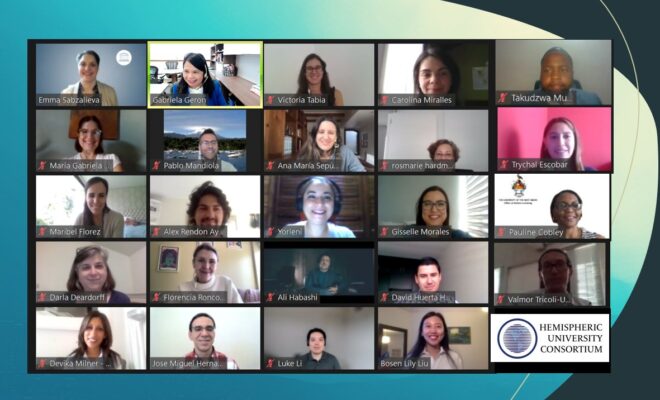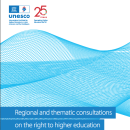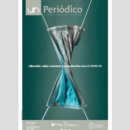UNESCO IESALC reveals that only 38% of mobility from Latin America and the Caribbean is to the same region


The UNESCO International Institute for Higher Education in Latin America and the Caribbean (IESALC) has just published Higher Education Mobility in Latin America and the Caribbean: Challenges and Opportunities for a Renewed Convention on the Recognition of Studies, Degrees and Diplomas (2019), a study that accounts for the relevance and magnitude of academic mobility in the region and prepares a diagnostic of its current status and recent evolution, from a comprehensive perspective of its challenges and opportunities. The title is inserted within the framework of the New Regional Convention for the Recognition of Higher Education Studies, Degrees and Diplomas in Latin America and the Caribbean, sponsored by UNESCO and recently adopted in the region.
The document speaks to the difficulty in qualifying and analyzing mobility, given the terminological ambiguity surrounding the term ‘academic mobility’, as well as the identification of data sources that allow it to be appropriately measured. For this reason, the study has retained the methodology used by national and international organizations, in particular by the UNESCO Institute for Statistics, and has restricted the concept of academic mobility (teachers, researchers and students) to those foreigners enrolled in Tertiary or higher education in a country of which they are not nationals.
Structured in five sections, the first addresses the context of academic mobility and its issues, among which are the factors that favor student mobility and the potential effects of the implementation of the new Regional Convention for Recognition of Studies. The second analyzes regional estimates of student mobility in Latin America compared to other regions, while section 3 speaks to regional initiatives that promote mobility, as well as its difficulties.
The challenges and opportunities of mobility are examined in the fourth section of the document, which includes a presentation of UNESCO’s regional conventions as instruments to strengthen the future of regional and global education. In particular, it explores the contribution made by the New Regional Convention for the Recognition of Studies, Degrees and Diplomas of Higher Education in Latin America and the Caribbean, sponsored by UNESCO, to the development of regional public policies that favor Latin American academic mobility and Caribbean and positively impact the region.
Regional mobility in figures
– A large number of the students who move abroad do not have sponsorships and fully assume the cost of their education. In Mexico, 48% of student mobility abroad in 2015-2016 was financed by families. The few existing data in LAC suggest that public financing is scarce, fragmented and, consequently, ineffective (p. 8).
– The number of students in HE continues to grow in the world and in the region. In just five years, between 2012 and 2017, its number has increased from 198 to 220 million, which means a growth of 10%. In Latin America and the Caribbean the increase has been even more impressive: from 23.7 to 27.4 million, with a growth of approximately 16% in this same period (p. 11).
– The gross enrollment rate in HE is 51% in the region, above the world average of 38% and 45% in the countries of the Organization for Economic Cooperation and Development (OECD) (p.11).
– Latin America and the Caribbean is one of the least attractive destinations internationally. Of the 5 million students, only 176,000, 3.5% of the total, choose a country in this region as their destination. Of these, 69% come from the region, an additional 12% from North America and Western Europe and the rest from other regions (p.12).
– In 2017, of the 312 thousand students who migrated from one country in Latin America and the Caribbean to study in another, 120 thousand (38%) stayed in the same region while 170 thousand (54%) chose North America or Western Europe as their destination (p.13).
– Argentina and Chile emerge as major centers of attraction for students from the same region: 84% and 87%, respectively, of the foreign students they receive come from the same region. The rest of the countries receive foreign students mainly from the same region in percentages lower. Only Ecuador and Brazil remain outside this norm, the latter being the only country in the region where slightly more than half of its foreign students (51.5%) do not come from the region but from other countries, notably in this order: from Portugal, the United States, Spain and several sub-Saharan countries, not just Portuguese-speaking (15).
This publication is the first in a series entitled IESALC Working Papers conceived to analyze topics of interest in the field of Higher Education in Latin America and the Caribbean.
Download the document
RELATED ITEMS







